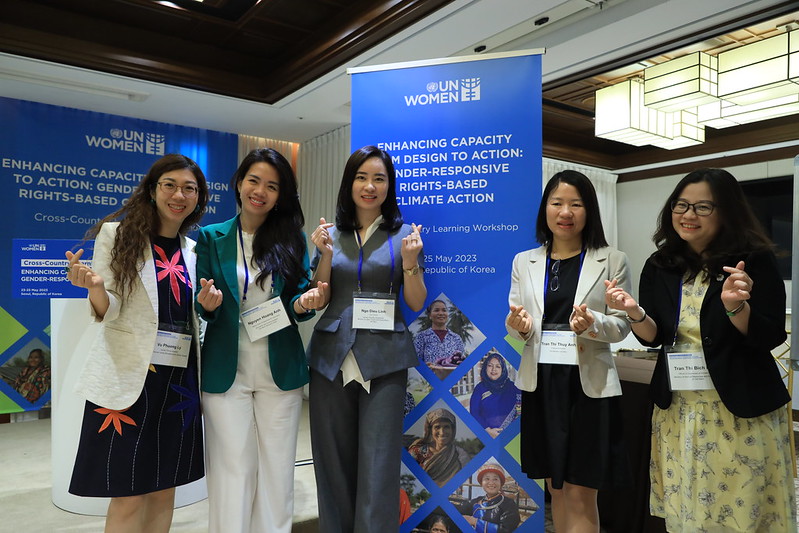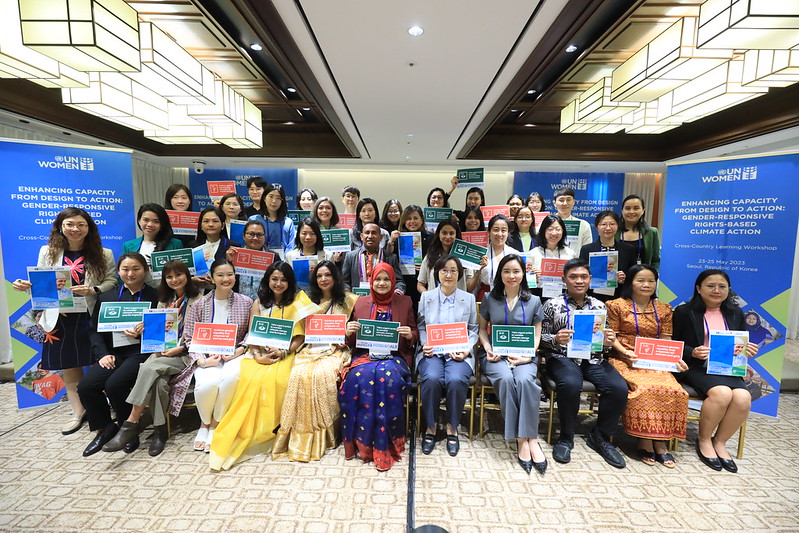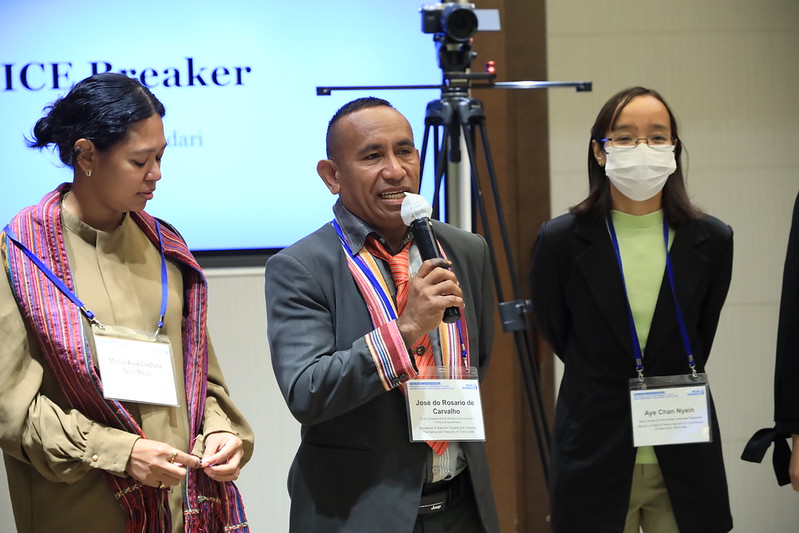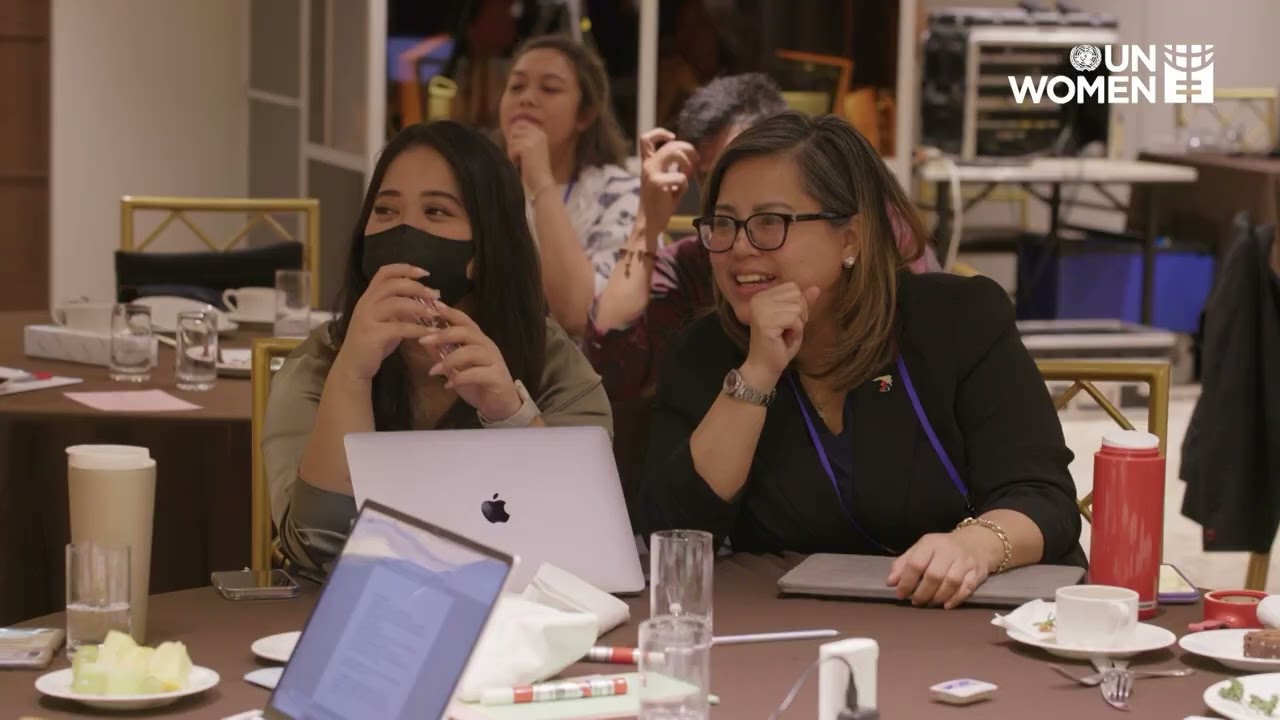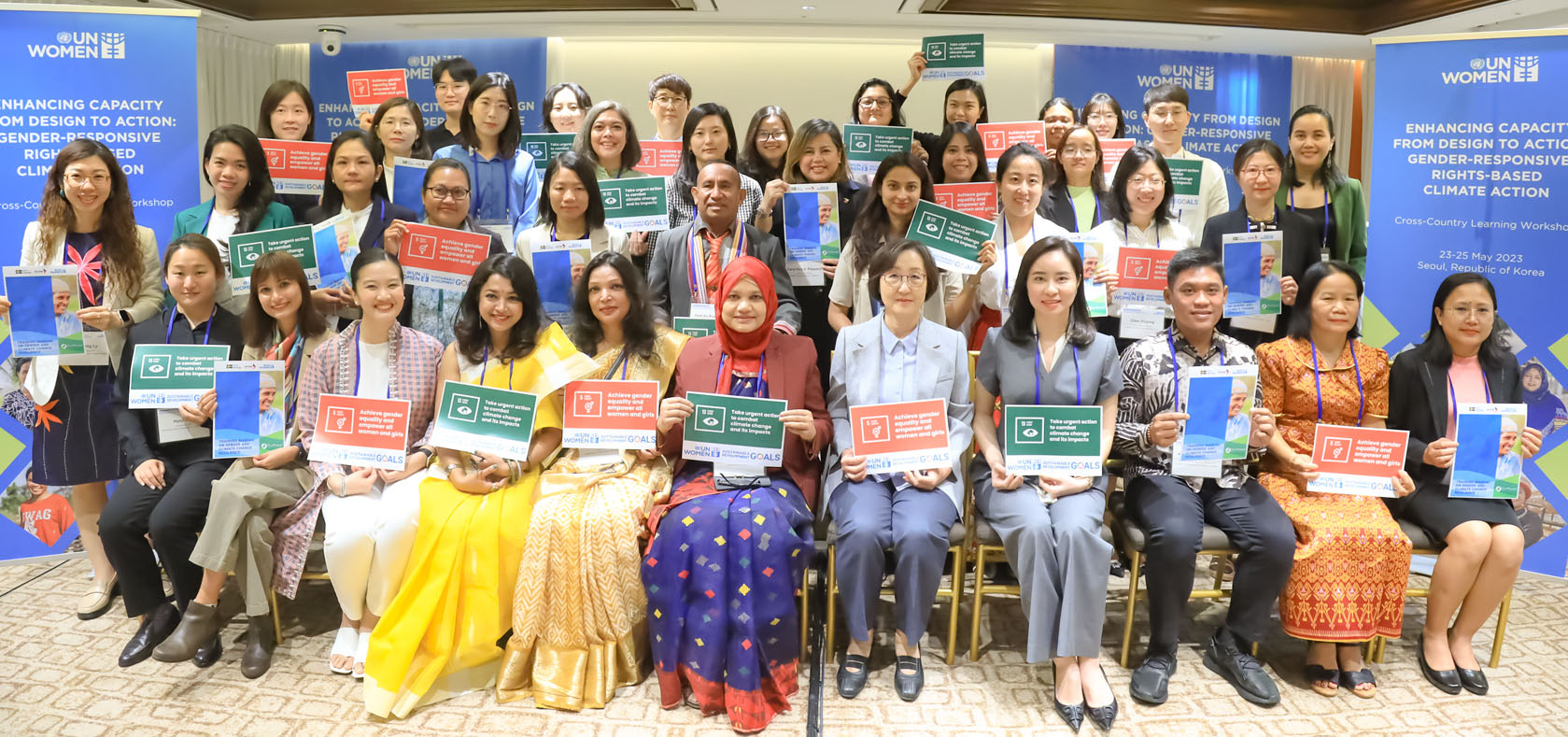
43 government representatives and experts are gathering from 23 to 25 May to exchange knowledge and experiences on gender and climate change in Asia. Photo: UN Women/Seung Jae Kim
English | 한국어
Seoul, Republic of Korea — 43 government representatives and experts are gathering from 23 to 25 May to exchange knowledge and experiences on gender and climate change in Asia.
“The region has seen the development of gender and climate change action, demonstrating the potential for scaling up and replicating gender-responsive climate action in more countries,” said Jeongshim Lee, director of the UN Women Centre of Excellence for Gender Equality, opening the three-day event. “The cross-country learning workshop is expected to be an open and effective space for countries to share promising practices on transformative climate action that has placed women’s and girls’ leadership and agency at the heart of decision-making.”
The workshop is jointly hosted by the Centre and UN Women Regional Office for Asia and Pacific. It emphasizes the importance of partnerships in sharing knowledge and expertise to promote gender equality and solutions-driven approaches to combat climate change. It aims to raise public awareness on the importance of gender-responsive climate action and highlight the need to support solutions for women, by women, in all their diversity. The participants are from Bangladesh, Cambodia, Indonesia, Nepal, the Philippines, the Republic of Korea, Viet Nam, Timor-Leste, the ASEAN Committee on Women and ASEAN Senior Officials on the Environment.
The Asia and the Pacific region is the world’s most disaster prone, and has witnessed an increase in the frequency and intensity of earthquakes, cyclones, floods, landslides, and tsunamis. The 2023 Asia-Pacific Sustainable Development Goals (SDGs) Progress Report shows that the region has fallen behind on SDG 13, which focuses on climate action. The region is falling well behind on the commitments under the Paris Agreement on Climate Change (2015) to keep global temperature rises under 1.5 Celsius.
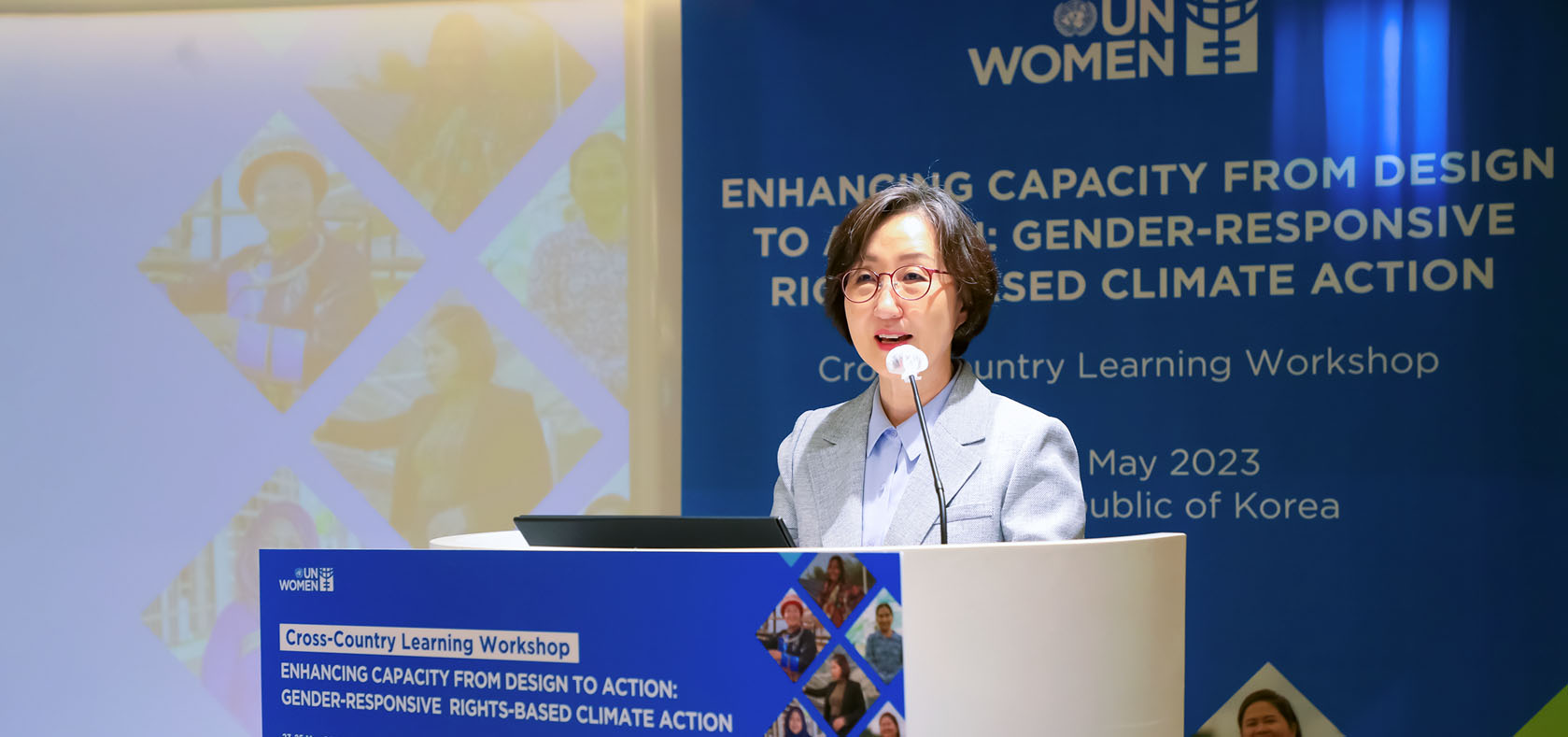
“The region has seen the development of gender and climate change action, demonstrating the potential for scaling up and replicating gender-responsive climate action in more countries,” said Jeongshim Lee, director of the UN Women Centre of Excellence for Gender Equality, opening the three-day event. Photo: UN Women/Seung Jae Kim
While a changing climate affects everyone, its impacts are not gender neutral. Women and girls bear more of the costs of the climate crisis, which amplifies existing gender inequalities and poses unique threats to their livelihoods, health, and safety. Across Asia and the Pacific, women depend more on, yet have less access to, natural resources. Women bear a disproportionate responsibility for securing food, water, and fuel. Agriculture is the most important employment sector for women in low- and lower-middle-income countries. During periods of drought and erratic rainfall, women, as agricultural workers and primary procurers, work harder to secure income and resources for their families. This puts added pressure on women, including young girls who often have to leave school to help their mothers manage the increased burden. Given the inextricable linkage between gender and climate change, addressing gender and social inequalities is critical for taking equitable and effective climate action.
UN Women has been at the forefront of promoting gender-responsive climate action. In Asia and the Pacific region, UN Women has partnered with governments, civil society organizations and private-sector partners to strengthen the voice and leadership of women in climate action under the national and international policy frameworks, such as the United Nations Framework Convention on Climate Change.
Deputy Regional Director OIC Maria Holtsberg emphasized that governments play a critical role in accelerating practical and effective climate solutions that recognize and uphold the rights of women and girls. Learning from governments across the region is key to scaling up promising approaches in the region and delivering on commitments. “UN Women is committed to bringing together governments and other stakeholders to foster a culture of learning and accountability to enable catalytic climate action for women and the most marginalized communities in Asia and the Pacific,” she said.
The workshop uses the Training Manual on Gender and Climate Change Resilience and e-learning course, which was developed under the regional project by UN Women and UN Environment Programme EmPower: Women for Climate Resilient Societies Project, funded by the government of Sweden. The training workshop includes an action planning session on its last day to identify areas requiring additional technical support, develop strategies for overcoming any challenges that the participants anticipate, and promote continuous learning and exchange on gender equality and climate action. Participants will then be invited to join a knowledge network supported by UN Women Regional Office for Asia and the Pacific. The platform will provide a space for sharing resources, raising questions, and supporting each other in the implementation and monitoring of gender-responsive climate policies and programmes. The network will foster ongoing learning, collaboration, and knowledge sharing to promote gender equality and inclusive climate action across the region.


